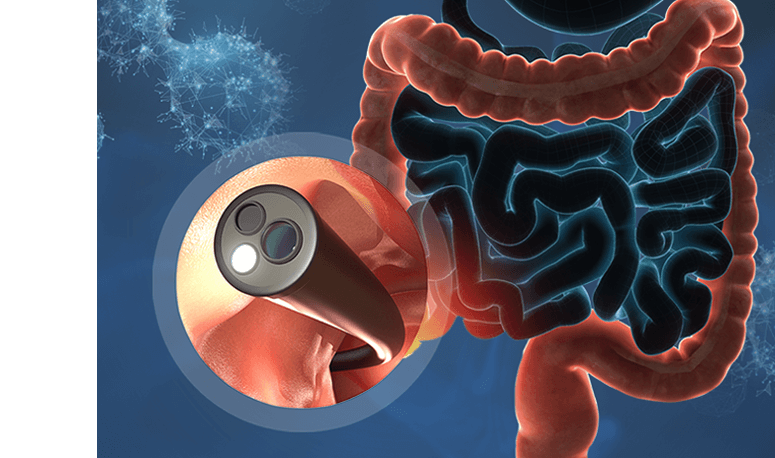A colectomy is a surgical procedure used to remove all or part of the colon when it becomes diseased or damaged. The large intestine—comprising the colon and rectum—is a long, tunnel-like organ located at the end of the digestive system. Its primary role is to absorb water and electrolytes, and to form waste into stool before it exits the body through the rectum and anus.
When a condition disrupts the normal function of the colon, whether due to disease, inflammation, or physical obstruction, a colectomy may be necessary to restore proper gastrointestinal (GI) function and improve quality of life.
At our colorectal surgery clinic, we specialise in surgical treatment for a wide range of conditions, including:
- Colon cancer
- Precancerous polyps
- Crohn’s disease
- Ulcerative colitis
- Diverticular disease
- Severe intestinal bleeding
Partial Colectomy
When Is Partial Colectomy Suitable?
Partial colectomy is typically recommended when the disease is limited to a specific section of the colon. This may include:
- Colon cancer limited to one section
- Diverticulitis affecting a specific area
- Large, non-cancerous polyps that cannot be removed during a colonoscopy
Procedure Overview
Partial colectomy can be done using open or minimally invasive (laparoscopic) techniques.
The general steps include:
- Patients will be placed under general anaesthesia.
- The surgeon will access the abdomen through either a single incision or a few small ones.
- The diseased part of the colon is removed.
- The healthy ends are joined back together in a process called anastomosis.
- A leak test may be conducted by injecting fluid or air into the rejoined section to confirm that the connection is secure and there is no leakage.
- Finally, the abdominal incisions are closed with sutures or staples, and sterile dressings are applied.
Benefits of Partial Colectomy
- Preserves more of the colon
- Often involves a shorter recovery period
- Lower risk of complications
Total Colectomy
A total colectomy involves removing the entire colon. After the colon is removed, the small intestine is connected to the rectum or to a stoma (an opening on the abdominal wall), depending on the individual’s condition.
- Smaller Incisions, Less Pain — The small incisions result in reduced trauma to surrounding tissue, leading to less postoperative pain and smaller, less visible scars.
- Faster Recovery and Shorter Hospital Stay — Patients typically recover more quickly and spend less time in the hospital, which allows for a faster return to daily activities.
- Lower Risk of Wound Infections — Smaller wounds carry a reduced risk of infection, which may lead to fewer postoperative complications and less need for antibiotics.
- Minimal Blood Loss — The precision of laparoscopic tools helps limit blood loss during surgery, which is particularly beneficial for patients with bleeding concerns.
When Is Total Colectomy Needed?
Total colectomy is reserved for widespread or unmanageable conditions. The goal is to remove the entire colon. Conditions that may require a total colectomy include:
- Familial adenomatous polyposis (FAP) causing hundreds of polyps
- Severe colorectal cancer affecting multiple parts of the colon
- Ulcerative colitis that affects the entire colon
Procedure Overview
The entire total colectomy procedure can take several hours to complete, following these key steps:
- Patients will be placed under general anaesthesia.
- The surgeon accesses the abdomen using open or laparoscopic techniques.
- The colon is removed while carefully preserving nearby structures.
- If needed, the surgeon will create a new route for waste—either connecting the small intestine to the rectum, or forming a stoma.
- The surgical incisions are then closed with sutures or staples, and sterile dressings are applied to aid healing and prevent infection.
Benefits of Total Colectomy
- Removes all affected colon tissue
- Reduces the risk of recurrence
- Often necessary in severe or emergency cases
Recovery and Postoperative Expectations
After a partial or total colectomy, patients typically stay in the hospital for 3 to 7 days. During this time, the medical team closely monitors for signs of infection, leakage, and the return of normal bowel function.
Common side effects include incision site discomfort, fatigue, bloating, and mild dehydration. Patients are usually encouraged to begin walking within 24 hours after surgery to support circulation and bowel recovery.
Bowel function may take several days to return. During this period, the diet gradually progresses from clear fluids to soft foods. Before discharge, patients receive detailed instructions on wound care and activity restrictions.
Strenuous activity should be avoided for 4 to 6 weeks. Most individuals recover fully within 6 to 8 weeks, with progress monitored through follow-up appointments.
While both partial and total colectomy involve removing part or all of the colon, they differ significantly in scope, purpose, and recovery. Each procedure has specific indications, surgical approaches, and associated risks.
Partial colectomy is typically recommended when the disease is localised to a specific area of the colon. In contrast, total colectomy may be necessary for more extensive or severe conditions, such as widespread inflammatory bowel disease or hereditary cancer syndromes.
Preoperative counselling plays a crucial role in helping patients understand the nature of the surgery, expected outcomes, and any long-term lifestyle adjustments. Schedule a consultation with our specialists to determine the most appropriate treatment plan for you.
Our Colorectal Surgeons

Dr Dennis Koh
Medical Director & Senior Consultant Surgeon
B Med Sci (Nottingham), MBBS (Nottingham)
MMed (Surgery), FRCS (Edinburgh), FAMS
Dr Dennis Koh is a MOH-accredited and experienced colorectal surgeon with specialised expertise in the management and treatment of colorectal cancer; and currently the Medical Director at Colorectal Practice.
Dr Koh strives to provide a customized treatment plan for each patient, which allows for better outcomes. He also honed his skills in proctology abRd in Geneva, bringing a more diverse touch to his practice.

Dr Sharon Koh Zhiling
Senior Consultant Surgeon
MBBS (Singapore), MMed (Surgery),
FRCS (Edinburgh), FAMS
Dr Sharon Koh is an experienced colorectal surgeon and the former Director of Endoscopy at Alexandra Health. She has subspecialty training in colorectal surgery, minimally invasive surgery, and advanced endoscopy — particularly in the field of colorectal cancer.
Dr Koh completed her fellowship at Cedars-Sinai Medical Centre in the US after being awarded the Academic Medicine Development Award by the National University Hospital.

Dr Pauleon Tan Enjiu
Senior Consultant Surgeon
MBBS (Singapore), MMed (Surgery),
FRCS (Edinburgh), FACS
Dr Pauleon Tan has served in public hospitals for over 15 years and is experienced in minimally invasive surgery and endoscopy. He is also experienced in the treatment for colorectal cancer, and strives to provide the best possible care to his patients.
Dr Tan undertook advanced colorectal surgical training at Japan’s Saitama International Medical Center after being awarded the Ministry of Health – Health Manpower Development Plan (HMDP) Award.


